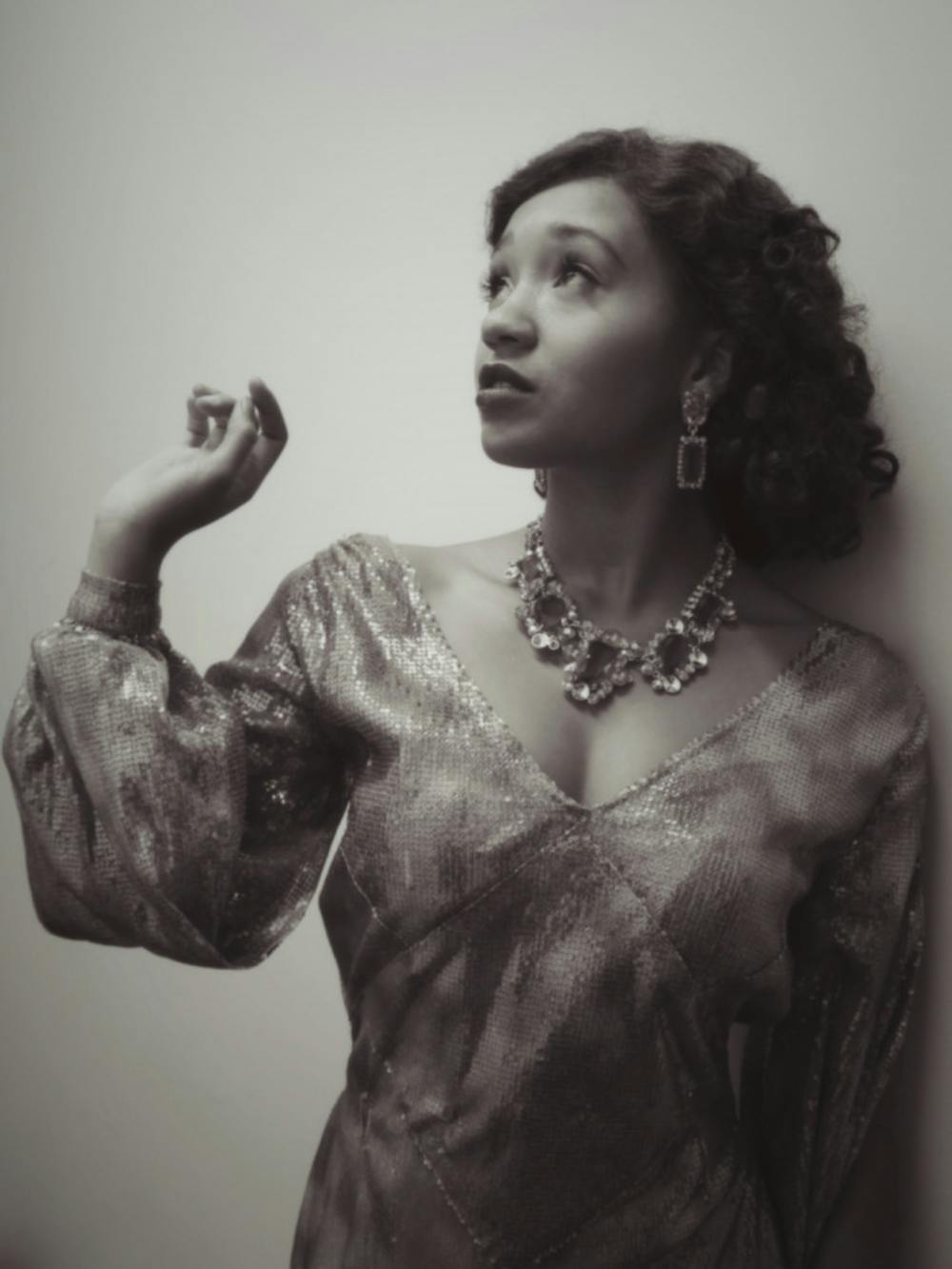Sock and Buskin’s “By The Way, Meet Vera Stark” employs screwball comedy as a means of social critique, and the results are funny and insightful in nearly equal measure.
The play, written by Lynn Nottage ’86, tells the story of fictional African-American actress Vera Stark and focuses on the beginning and end of her career. The first act is set in the 1930s, when Vera works as a servant to the movie star Gloria Mitchell, desperate to make the leap from the sidelines to the screen.
Eleonora Saravalle ’18, who plays Gloria, acts the part with brio, using grand gestures and dramatic screeching to command our attention. Sienna Vann ’17, as Vera, performs the quieter part admirably, demonstrating a careful balance between being Gloria’s servant and friend.
Tensions between the two emerge in the first scene, when Gloria casually delivers to Vera a stinging reminder of her class and race. Director Kym Moore, associate professor of theatre arts and performance studies, said that “the hardest thing was to get the actors to be mean to each other.” Here, they succeed.
Race comes boldly to the foreground in the next scene, where we are introduced to two of Vera’s friends, Lottie (Maya Blake ’19) and Anna Mae (Stella Akua Mensah ’17, a lively comedic presence), both of whom also aspire to be actresses. Vera tells Lottie about a new Southern epic film, “The Belle of New Orleans,” that she wants to audition for, and in which she would play a slave. Lottie responds with wry excitement, “Slaves? With lines?” She then bends down and sings a low, mournful spiritual. As performed by Blake, it’s a sly, cutting parody of Hollywood’s romantic conception of slavery.
The comedy remains similarly potent as the act progresses. The director of “The Belle of New Orleans,” Maxmillian Von Oster (Xavier Markey-Smith ’19, bursting with pomp and overblown genius), proclaims that he wants to see the “hundred years of oppression in the hunch of their shoulders.” Lottie and Vera in turn try to appeal to the director’s fantasy, with Vera spinning a yarn of her hardscrabble childhood on the Mississippi Delta.
It’s one moment among many that feels strikingly contemporary. Von Oster’s vision of African-American life as one of only horror and oppression is reminiscent of Donald Trump’s depiction of African-American communities today as violent, decaying urban hellscapes. Lottie’s mocking of Hollywood’s slavery obsession also remains poignant; the last African-American actor to win an Oscar was Lupita Nyong’o in 2013, who won for playing a slave in “12 Years A Slave.”
The second act opens with a filmed excerpt from “The Belle of New Orleans,” starring Vera and Gloria as slave and mistress, respectively. Onscreen, Vann powerfully evokes the film stars of the past. The camera lights up her eyes — deep wells of sympathy that make Vera’s stardom plausible.
The excerpt was shot in a historic Warwick home, where slaves were buried in the backyard, according to Moore. The students were somewhat “freaked out” by this, but “I felt proud of us that we had that connection with them,” she said. This experience speaks to the play’s own thematic underpinnings, which demand a reckoning with our culture’s complex racial history.
Some of that reckoning is made explicit in the second act, where, after the brief film screening, a panel of academics convene decades later to discuss Vera’s legacy. They focus on “The Belle of New Orleans” as well as an infamous 1973 talk-show interview with Vera and Gloria, which is not filmed but performed live. Andrew Ganem ’16.5 plays the show’s host with a goofy assurance.
In playing an older version of Vera Stark, Vann has a daunting challenge — to convey recognizable traits of her character’s younger self from decades past, while also showing the inevitable transformation from the strains of an unsympathetic, oppressive industry. She does not quite rise to the challenge, leaving the wig and the new flashy dress to do most of the work. When Vera has a withering line to Gloria, who remains obtuse to Vera’s past and present struggles, we hear little of the anguished, bitter history behind it.
But all told, the production delivers its message and its comedy very well — more importantly, it sees the connection between the two. The play laughs at the absurdity of the assumptions that motivate injustice. According to Moore, an actor came up to her after rehearsing a scene and said it was ridiculous, that they had gone too far. Her response? “Precisely. That’s the point.”
“By The Way, Meet Vera Stark” plays again next weekend at the Leeds Theater from 8 p.m. to 10 p.m. Oct. 6-8 and 2 p.m. to 4 p.m. Oct. 9.





